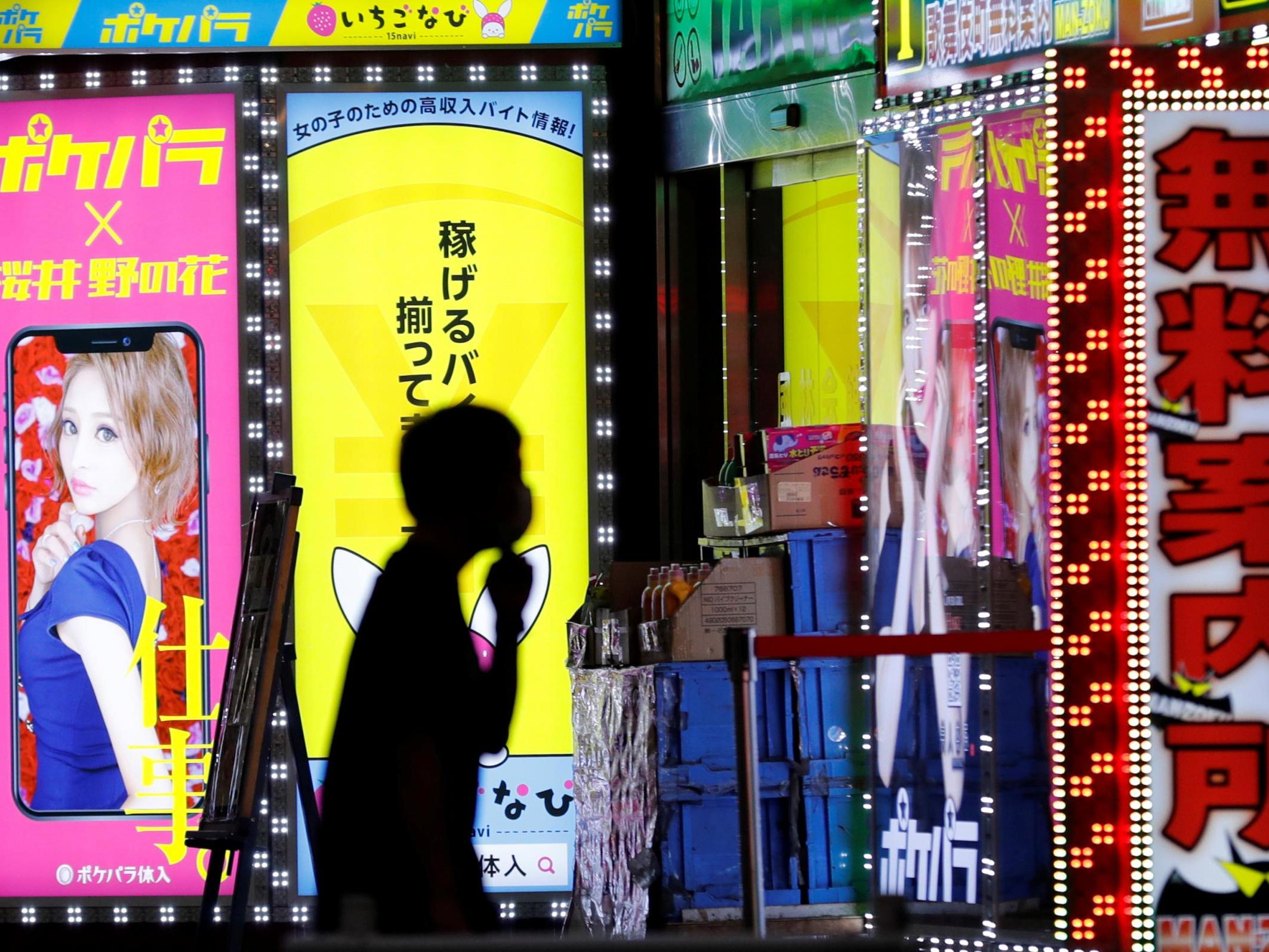‘Kiss only your partner’: Japan suggests new nightlife guidelines for coronavirus era
Fresh guidelines unveiled as cases rise in Tokyo’s hostess bars

Your support helps us to tell the story
From reproductive rights to climate change to Big Tech, The Independent is on the ground when the story is developing. Whether it's investigating the financials of Elon Musk's pro-Trump PAC or producing our latest documentary, 'The A Word', which shines a light on the American women fighting for reproductive rights, we know how important it is to parse out the facts from the messaging.
At such a critical moment in US history, we need reporters on the ground. Your donation allows us to keep sending journalists to speak to both sides of the story.
The Independent is trusted by Americans across the entire political spectrum. And unlike many other quality news outlets, we choose not to lock Americans out of our reporting and analysis with paywalls. We believe quality journalism should be available to everyone, paid for by those who can afford it.
Your support makes all the difference.Tokyo’s bars and clubs have brought in new rules to try to prevent the spread of Covid-19, following a spike in cases which Japan’s government has blamed on the capital’s nightlife scene.
The authorities have focused attention on Tokyo’s thousands of host and hostess bars – where white collar workers are entertained by, sing karaoke with and are served drinks by dedicated waitresses.
New cases in Tokyo reached as many as 300 a day last week, prompting the government to urge people not to travel to and from the capital. Travel to and from the city has also been excluded from a multibillion-dollar government campaign to revive domestic tourism.
But those working at bars in Tokyo need more guidance on how to stay safe during the pandemic, Shinya Iwamuro, a public health advocate has argued.
Mr Iwamuro has already begun teaching infection control measures in many of Tokyo’s nightspots, and during a news conference, he explained what steps hostesses should take.
“As much as possible, kiss only with your partner, and avoid deep kissing,” Mr Iwamuro said. There should also be no sharing plates of food and guests should be sitting at right angles to avoid droplet contamination during conversation, he added.
The Nightlife Business Association has also drafted new guidelines for its members, which include disinfecting karaoke microphones in between sessions.
Official government advice remains to stay two metres apart and wear masks, but these would be impractical for most bars and clubs, Kaori Kohga, representative director of the association, told journalists.
The chief cabinet secretary, Yoshihide Suga, is reportedly considering more spot checks of nightlife businesses after strategic testing of Tokyo’s hostess bar districts revealed rising numbers of new cases of coronavirus, especially among the young.
The government is also mulling over whether to toughen its special pandemic legislation which allows it to declare a state of emergency.
But Ms Kohga said the government was scapegoating Tokyo’s buzzing nightlife for the city’s rising number of Covid-19 cases.
“Nothing will change if you’re only criticising us as the bad guys,” she said, adding the government hadn’t acknowledged their rules nor offered enough financial help to businesses or workers.
Many Japanese women, including single mothers and others who found it hard to find work, use the hostess bar scene as a de facto safety net for easy employment, she added.
This message was echoed by Masayuki Saijo, director of virology at the National Institute of Infectious Diseases, who insisted the authorities should not target or discriminate against certain groups of people simply because of where they worked.
“There’s no difference, working at night or working in the day,” Mr Saijo said. “The strategy to reduce human-to-human infection is the same.”
Japan lifted its initial coronavirus state of emergency in May, but has seen rising numbers starting earlier this month. Daily new cases are now higher than their peak during the state of emergency, but officials have insisted it was not necessary to return to the state of emergency and some of the rise was down to increases in testing.
Nevertheless, the country has handled the pandemic better than most, with fewer than 1,000 people dying from the virus, compared to 45,000 in Britain and 143,000 in the United States.
Subscribe to Independent Premium to bookmark this article
Want to bookmark your favourite articles and stories to read or reference later? Start your Independent Premium subscription today.
Join our commenting forum
Join thought-provoking conversations, follow other Independent readers and see their replies
Comments